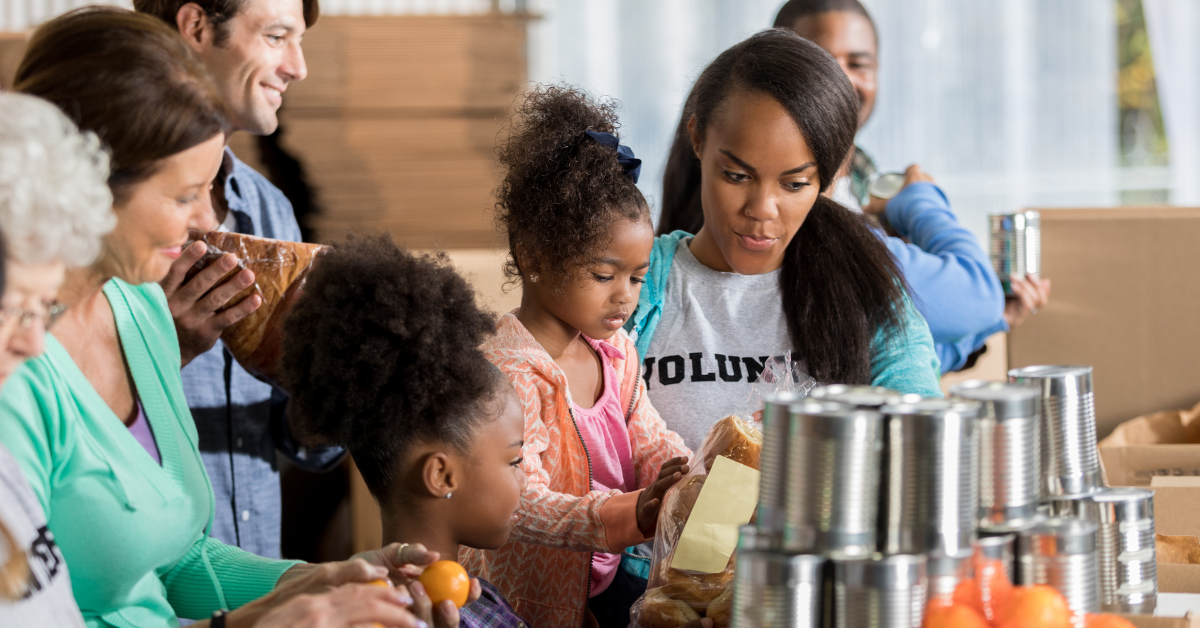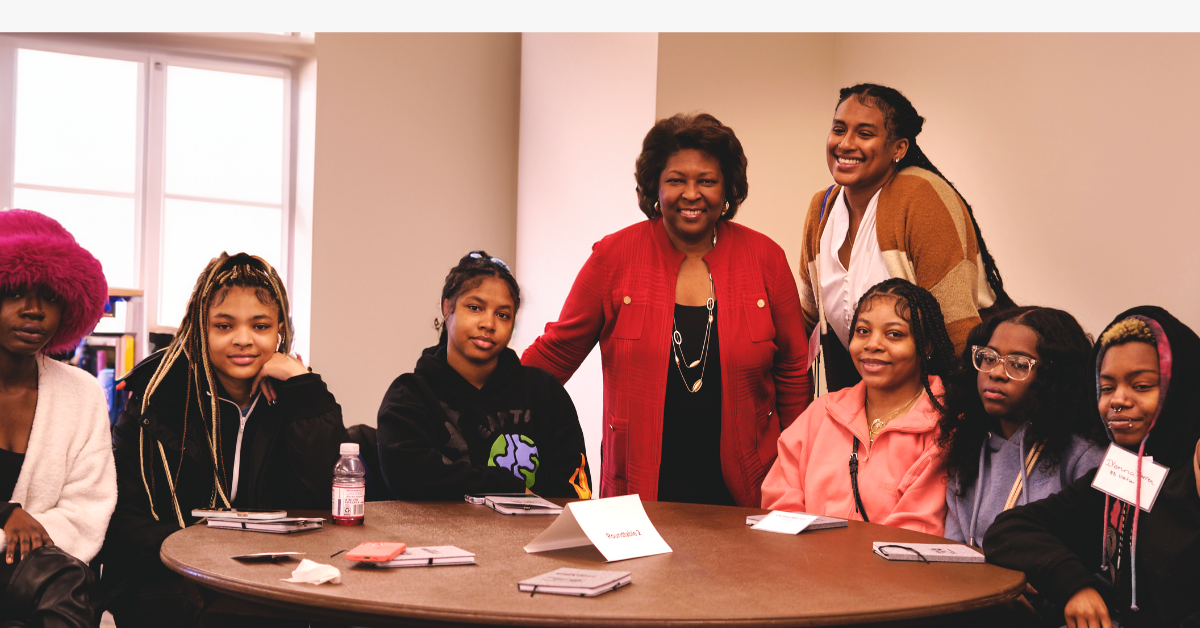
What is the Social Responsibility Norm?
The social responsibility norm (SRN) is a societal expectation that people should engage in positive social behavior to contribute to the welfare of their community as a whole. It’s the underlying principle that we should all play a role in making the world a better place. It encompasses the belief that people have a moral obligation to act in ways that benefit others, even when there is no direct personal gain.
Adhering to the social responsibility norm promotes a sense of collective well-being and reinforces the idea that you’re not just responsible for your own interests, but also for the welfare of your society.
How the Social Responsibility Norm Impacts Our Communities
The social responsibility norm can have a profound impact on communities by fostering a sense of moral duty to act for the greater good. It promotes altruism, cooperation, advocacy, and civic engagement, all of which contribute to the well-being and progress of communities. It impacts our communities in several ways:
Altruistic Behavior: The social responsibility norm encourages individuals to engage in altruistic behavior, which is characterized by selfless actions that benefit others without expecting anything in return. In a community, this can manifest as people volunteering their time, skills, or resources to support local causes, charities, or community initiatives. For example, individuals may participate in food drives, mentorship programs, or environmental clean-up efforts to improve the well-being of the community.
Collective Well-Being: When the social responsibility norm is embraced within a community, it promotes the idea that the well-being of the community is a shared responsibility. This leads to increased cooperation, collaboration, and a sense of unity among community members. When people believe in their duty to contribute positively to their community, they are more likely to work together to address common challenges and improve overall quality of life.
Corporate Social Responsibility: In the business world, the concept of corporate social responsibility (CSR) is directly influenced by the social responsibility norm. Companies that adopt CSR initiatives recognize their obligation to consider the interests of not only shareholders but also stakeholders such as employees, customers, suppliers, and the communities in which they operate. This can lead to businesses engaging in practices that benefit local communities, such as supporting educational programs, environmental sustainability, or philanthropic efforts. Navy Federal’s partnership with United Way NCA for financial literacy is a prime example of corporate social responsibility.
Social Change and Advocacy: The social responsibility norm can motivate individuals and groups within a community to advocate for social and environmental causes. Community members may organize or participate in movements, campaigns, or protests to address issues like poverty, inequality, discrimination, and environmental sustainability. By doing so, they aim to influence policies and create positive change on a broader scale.
Empowerment and Civic Engagement: Embracing the social responsibility norm encourages civic engagement within communities. People are more likely to participate in local governance, vote in elections, and become informed and active citizens. This increased civic involvement can lead to the development of stronger, more resilient, and socially responsible communities.
Fostering Social Capital: Social capital refers to the social connections, networks, and relationships that exist within a community. Embracing the social responsibility norm can strengthen social capital by encouraging people to engage with and support one another. This, in turn, can lead to increased trust, cooperation, and a sense of belonging among community members.
Addressing Social Issues: Communities that embrace the social responsibility norm are more likely to address pressing social issues, such as poverty, homelessness, access to healthcare, and education. They are also more likely to create support systems, services, and safety nets for vulnerable populations, which can enhance the overall quality of life for residents.
See It In Action: Social Responsibility Norm Examples
The social responsibility norm appears often in ideologies, religion, and also in media. It encourages actions such as volunteering, charitable giving, and environmentally responsible behavior. Some examples of adhering to the social responsibility norm are:
- Volunteering: Many individuals donate their time and skills to organizations, causes, or community projects without expecting monetary compensation, driven by a sense of responsibility to help others. Soup kitchens, participating in food drives, and even just helping your neighbor are all examples of volunteering for the social responsibility norm.
- Charitable Giving: Donating money or resources to charitable organizations, fundraisers, or disaster relief efforts reflects the social responsibility norm by providing support to those in need. If you give money to the Salvation Army or give money to the unsheltered people in your town, you’re participating in charitable giving.
- Environmental Conservation: Engaging in eco-friendly practices, such as recycling, reducing energy consumption, and minimizing waste, demonstrates a commitment to the well-being of the planet and future generations. If you pick up trash that others left and don’t litter yourself, you’re participating in environmental conservation!
- Mentoring and Education: Professionals and experts can provide mentorship or offer educational assistance to disadvantaged individuals or students, contributing to the social responsibility norm by empowering others through knowledge and guidance. Whether you’re teaching kids a class or connecting with people on LinkedIn to provide them interview tips, you can easily contribute to this norm.
While these are some great overarching categories of adhering to a social responsibility norm, you might not know it, but these smaller individual actions also count:
- Donating clothes to a local charity
- “Paying it forward” for someone else
- Educating others or raising awareness for social issues
- Planting trees to help preserve forests or bolster green spaces
- And even just emotionally supporting and assisting others
These all count as contributing to the social responsibility norm.
How To Grow Social Responsibility In Your Community
There are a variety of actions you can take to foster a culture of civic engagement, altruism, and collective responsibility in your community. Actively participating in community initiatives and demonstrating a strong commitment to social responsibility can inspire others to follow suit, for example. Additionally, raising awareness about the concept of social responsibility and its benefits can be achieved through workshops, seminars, and information sessions held in public meeting spaces.
Engaging in volunteer work and encouraging others to do the same is another effective way to promote social responsibility. This can include supporting local causes and initiatives that address community needs and social issues, and collaborating with local businesses, schools, non-profits, and government agencies to build partnerships that can channel resources toward social responsibility efforts.
Establishing or participating in support networks that address the needs of vulnerable populations is another way to make a direct impact. Advocating for policy changes where local policies or regulations could be improved to support social responsibility, and engaging with local officials and leaders to advocate for these changes, is an essential part of the process.
And don’t forget to celebrate social responsibility through recognition and appreciation of individuals, organizations, and businesses that exemplify these values in your community. Using social media and online platforms to bring visibility to successes can encourage community participation, especially among those who may be reluctant to engage.
How United Way NCA Works To Heighten The Social Responsibility Norm
Here at United Way NCA, we’re proud to connect you with opportunities to assist your community. As a nonprofit organization, we’re inherently aligned with social responsibility norms, as our primary mission is to address social and environmental issues. We have a focus on equity (read the difference between equity and equality here) and provide assistance to our community through a variety of programs.
We tackle a variety of issues in the DMV area through several different initiatives, such as:
ALICE Lives Here
Our ALICE Lives Here project aims to reduce disparities in the areas of health, education and economic opportunity for low-income families in the DMV area who don’t meet the standard cost of living.
We provide support through a variety of ways for our ALICE community, including financial empowerment centers to provide counseling services and resume assistance, healthcare provider access, and connections to services like rent relief.
Project Community Connect
Our Project Community Connect initiative is a yearly event designed to provide essential services to the homeless or those at risk of homelessness in our community.
This resource fair and street outreach combination brings all the important resources to the people. In 2023, we partnered with 40 organizations and served 331 participants to connect them to health care services, rent and utility assistance, food security, and more.
Stuff The Bus
Our Stuff The Bus project occurs prior to the school year start and is designed to provide backpacks filled with expensive school supplies to children from lower-income families, alleviating the financial burden for them. We help set up our children for academic success through these donation drives and initiatives.
How You Can Help Us Support Our Community
In a world increasingly defined by social responsibility norms, the power to effect positive change lies within each one of us. Nonprofits like United Way NCA embody the spirit of these norms by actively addressing pressing societal issues, fostering community, and driving meaningful impact.
Want to be part of our efforts? Consider taking action today. Whether through a financial contribution or volunteering your time, you can make a tangible difference in the lives of those who need it most.
Together, we can build a more compassionate, equitable, and sustainable world. Join us, be the change, and make a lasting impact today. Learn more about what we do today.


